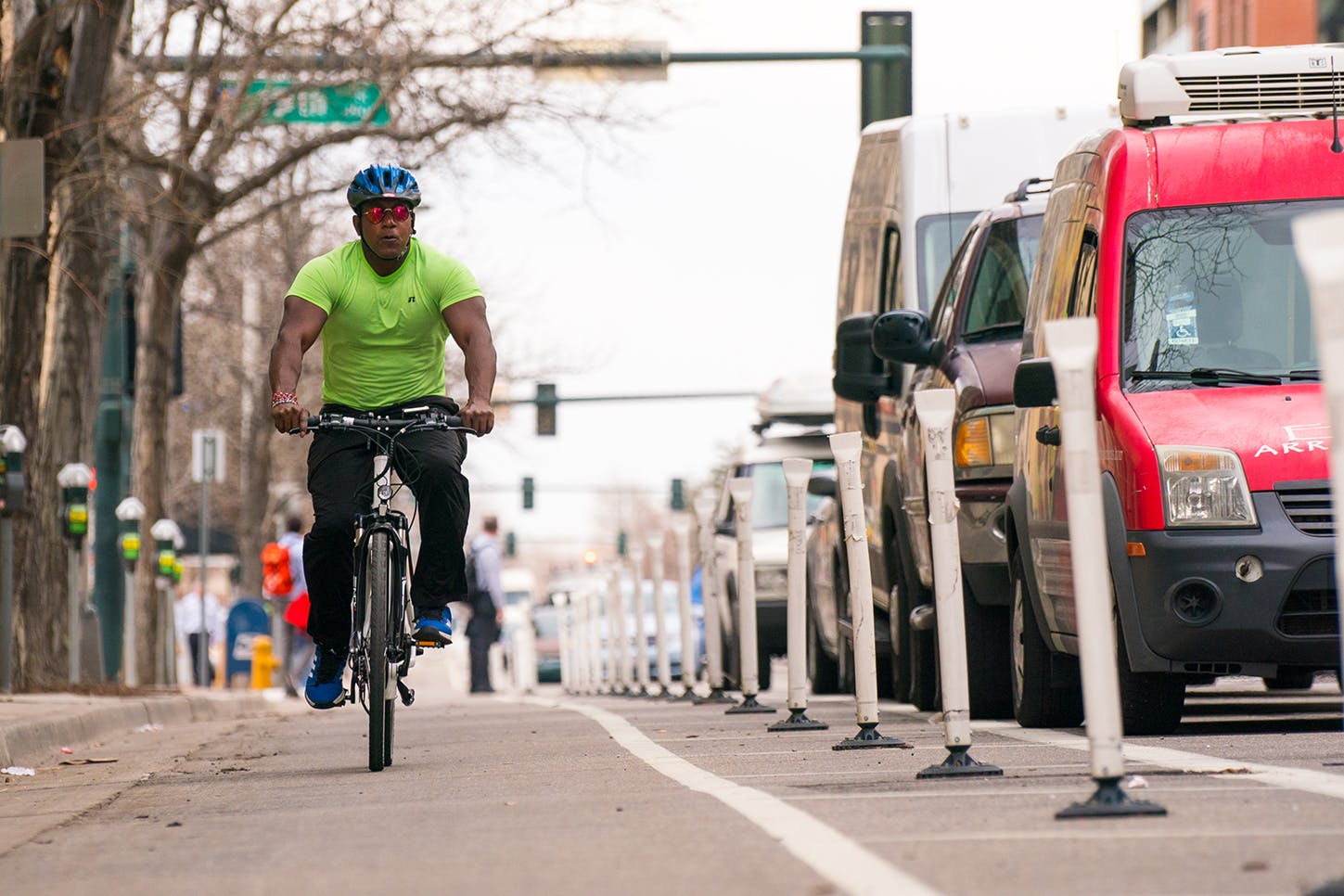Incentivizing Bicycling Is Climate Policy
By: Noa Banayan, director of federal affairs

A consumer rebate for electric bicycles and a commuter benefit for biking to work aren’t just tax policy, they’re climate policy.
As Congress hashes out the details of a $3.5 trillion spending bill (does the term “budget reconciliation” sound familiar?), questions on how we confront the climate crisis through policy and funding are at the forefront. The devastating consequences of more recent disasters like Hurricane Ida and the Caldor Fire require bold leadership from elected officials at every level of government. The reconciliation bill in question is a clear opportunity for Congress to take transformative action on climate change. At PeopleForBikes, we have a few ideas on how to do just that.
We advocate for policies that make it easier, safer and more accessible to choose bicycling for transportation and recreation. At the federal level, we’re asking Congress to pass the E-BIKE Act and the Bicycle Commuter Act in the budget reconciliation bill. A committee in the House of Representatives is set to approve these policies (with some changes, which you can read about here.)
- The E-BIKE Act would offer American taxpayers a 30% refundable tax credit (up to $1,500) on the purchase of a qualifying new electric bicycle, lowering the cost barrier to owning an e-bike and using it to replace short car trips.
- The Bicycle Commuter Act would create a nearly $1,000/year pre-tax commuter benefit for biking to work that could be used in harmony with parking and transit benefits, plus cover bike share, micromobility and electric bicycle costs.
These asks go alongside a long list of infrastructure priorities, including increasing funding for cities and states to build safe, connected bike networks. You can read more about those requests in our recent blog post covering the Bipartisan Infrastructure Bill.
Let’s take a step back — transportation is the largest source of climate change causing emissions in the United States, responsible for 29%, and the lion’s share of those emissions (58%) come from passenger vehicles. We’ve long championed the bicycle as a tool for replacing short car trips, and this has never been more true with the current rise in popularity of electric bicycles and the expansion of safe, connected bicycle infrastructure in many American communities.
We know that changing commuting habits and transportation behaviors takes hard work and good timing, the latter of which Congress has on its side right now with the reconciliation bill, an infrastructure package and many Americans reevaluating how they move as travel norms continue to adjust amid the pandemic.
We’re not asking for something new and novel, or even that costly in the grand scheme of green incentives. These incentives already exist for electric vehicles and clean energy projects because we understand that money not only motivates people to change behaviors, habits and resources, but it also lowers the barriers to access.
A consumer tax credit for electric bicycles is climate policy because it ultimately will make it easier for millions of Americans to displace a bulk of their passenger vehicle emissions with clean, easy riding. A commuter benefit for biking to work is critical to support essential workers and many employees beginning their return to in-person work. Together, these policies can reduce traffic congestion, improve air quality, lower commute times and make biking more accessible for all.
Congress must seriously consider incentivizing transportation mode shift as a policy strategy for lowering emissions and tackling the climate crisis. There’s no single solution to turning back the clock on climate change, but there are straightforward options that can be implemented quickly and at low cost that make it easier for everyone to lower their carbon emissions just by getting out on two wheels.
